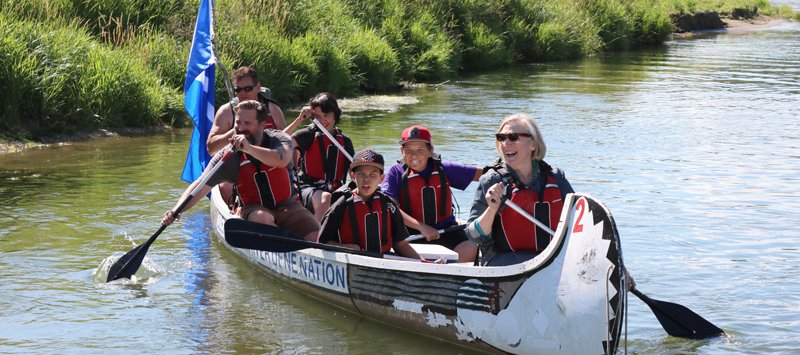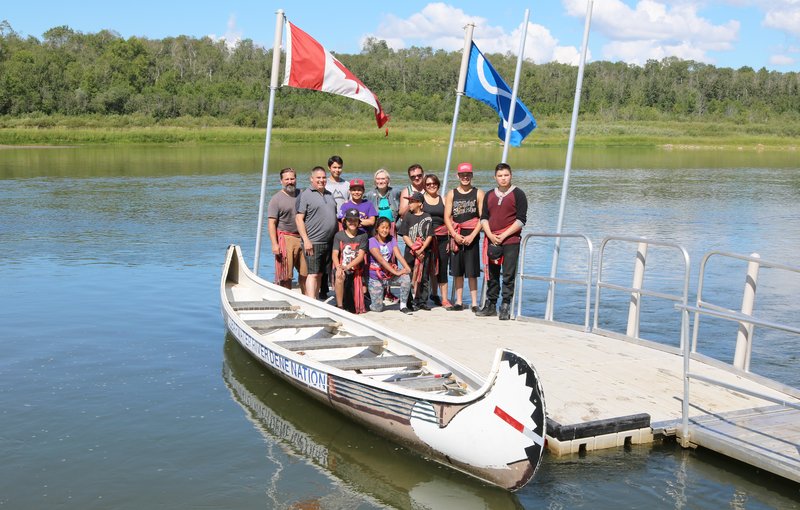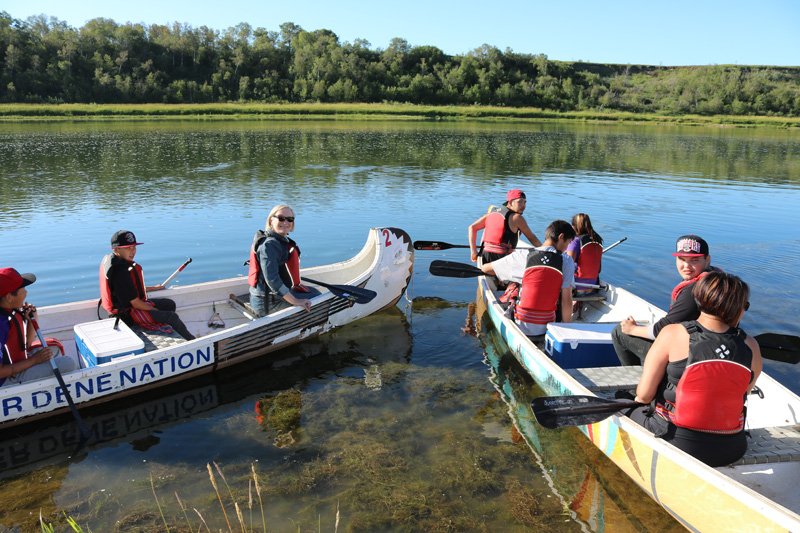
Living the River's Stories
Our lands and rivers hold many stories that are just waiting to be told. An annual youth and Elder canoe trip takes participants on the river to learn from these stories and discover the past.
“It’s not so much about the paddling as it is about the history, putting some type of spark in the imagination,” says Leonard Montgrand, executive director, La Loche Friendship Centre, and coordinator, Youth and Elders Voyage -- an annual canoe trip on the South Saskatchewan River from the Hague Ferry to Batoche for Back to Batoche Days in July.

Montgrand explained to the voyagers about the stamina needed, the gruelling stroke rate, and the hours spent each day working. Stories outlined the perils faced by human and natural dangers.
“It’s quite intimidating especially when we get out to the river, and the water is flowing, and it’s rocky by the Hague Ferry. They’re all looking at each other and the Elders say, 'Are you sure this is safe?’ I tell them ‘yes’. I wouldn’t take anybody out there if it wasn’t safe.” Montgrand explains that the voyageur canoes are stable and that in preparation for the trip they do dry land training, practicing the proper technique for getting into the canoe and proper paddling switching mechanisms.
“The MCDF (Métis Cultural Development Fund) gives us the grant money, we appreciate that, without it we would probably have a hard time going each year,” adds Montgrand.
"It's not so much about the paddling as it is about the history, putting some type of spark in the imagination."
Elders were involved in the voyage in various roles. They were part of a drum ceremony when the canoes were put in the water. Some prepared the meals and taught the youth how to prepare the food, some rode in the canoes. “It is a bonding experience for the kids and the Elders, creating a connection,” explains Montgrand.
Logan, a ten-year-old from La Loche, was the youngest participant on the journey. He says that enjoyed the trip and hopes to have other similar experiences in the future. He also found the paddling hard but enjoyed exploring new places and the views from the river.
“I liked meeting new people, making friends, making a new friend with Minister Bennett,” says Logan. A true adventurer, Logan says he hoped they would tip the vessel and get a chance to swim. “There were so many rapids, we’d almost tip. That was scary.”

He explained a challenge they faced on the river. “The water was so shallow we had to get off the canoe and push because it was touching the sand. We pushed it a long way.” He enjoyed the food, the hard work, even though it meant sore arms, and the history. “It was cool, they told us cool stories.”
The participants were challenged by the heat and the hard work as they tried to stay hydrated. “I’m not trying to take them out there to put them through the most gruelling boot camp in the world. I want to try to get them to get some sense of what the lifestyle was back then, to thank their lucky stars they’re not living in that century.
A lot of them haven’t seen a lot, living at road’s end in La Loche. It’s a tough environment. A lot of these kids come along, they get a break, a respite from that. They can sit back and be themselves,” says Montgrand.
“It’s not a life changing moment for them but sometimes in the back of their minds they always have that memory, that good memory, they need more good memories than bad memories.”


 Engage - Volume 7, Issue 2, Spring 2017
Engage - Volume 7, Issue 2, Spring 2017